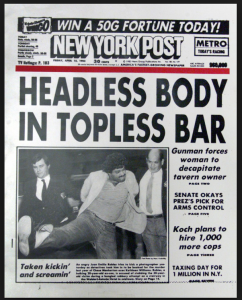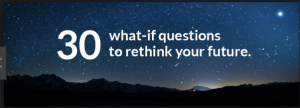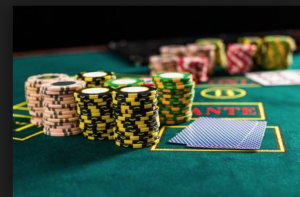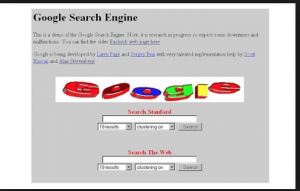I regret. I regret a lot. I wish I could have been different.
I wish I could be 17 again and know these rules.
There’s nothing wrong with regret. There’s nothing wrong with wondering how your life would have been different and better.
This is what I wish I knew:
A) DON’T DEPEND ON OTHERS FOR YOUR HAPPINESS
If you outsource your self-esteem, you’ll never be happy.
I outsourced my self-esteem to girlfriends. It was hard enough for them to handle their own self-esteem, let alone mine.
I outsourced my self-esteem to professors, thinking a good grade would make my life better. It didn’t.
Later I outsourced my self-esteem to bosses, thinking a promotion would make my life better. It didn’t.
I outsourced my self-esteem to anyone who had the power to “choose me” – publishers, TV, investors, customers.
I could’ve spent that energy developing the skills to choose myself. There is ALWAYS a back door to dreams.
When I depended on others for my own happiness I ended up trying too hard to make OTHER people happy. If they are happy, I thought, they will make me happy.
A waste of time and effort. People only cared when it was their own self-interest. I am fine with that now.
B) DON’T READ NEWS
I can’t even remember the news from when I was 17 but I always read three newspapers a day and every magazine.
Read books instead. The news when I was 17 was that Reagan was trading drugs for hostages and that Michael Jackson was going to release another album.
Knowing this has had zero effect on my life. I should have read another book about history, or a biography, or a good piece of fiction.
When you read a book, you absorb some of the 10,000 hours of expertise the author poured into the creation of that book.
When you read a news article, you are fooled into caring about something that will have zero consequence on your life.
News is about shock. Not about knowledge.
C) WAKE UP ASKING… “WHAT IF…?”
For instance, “What if I didn’t go to college and instead I wrote a book or learned how to program and started making money instead of borrowing it?”
Or, if you want to go to Harvard but were rejected: “What if I just showed up for classes there and nobody realized I wasn’t an actual student?”
“What if I took a job and started learning skills instead of arguing with my college girlfriend?”
“What if I stopped waiting to begin my life and started pursuing the things I love?”
When you start with “What if?” you start with Questions instead of Answers.
17 year olds don’t have Answers but I always thought I did. Start with Questions instead.
“What if…?” lets you build a bridge between reality now and the desires you want.
“What if…?” lets you step outside the path that parents, teachers, friends, society have planned for you and allows you to find your own path.
“What if…?” lets you admit you are stupid but open-minded enough to be curious and explore the entire universe.
(Exercise: Ask 30 “what if” questions about your life. Like: What if I could make my own TV show and put it on YouTube. Or…What if I could be a professional sports anchor… what 100 steps would build that bridge? Or…What if I could invent my own cryptocurrency? What would make it unique? and so on.)
D) DON’T ARGUE
I would argue with my dad about Nicaraguan politics.
Who the heck cares now? And what change did I create by arguing? I thought I knew everything and so did he. So we wasted mindless hours arguing about something stupid and now he’s dead.
I would argue in classes about poetry or philosophy instead of learning for myself what life was like in the real world.
I would argue about the economics of poverty with other people who knew nothing about either.
Poetry is found by doing what you love, by scraping a knee when you fall, by lifting yourself up even when you’re dirty and bloody and tired and you have to start all over.
Philosophy is found when you find the edges of the comfort zone of life and make your first attempts to step outside of it.
Poverty is found when you do everything you can to succeed and you fail and you take ownership of your mistakes and you start again.
Opportunity is found not in the middle of an argument that has no outcome on life, but in the places that are least crowded, where you are exploring and finding out who you uniquely are.
E) EXERCISE THE CREATIVE MUSCLE
Nobody wants you to be creative:
“Ideas are a dime a dozen.”
“Ideas are not a business.”
“Execution is everything.”
Creativity is a muscle. You can’t have good ideas if you don’t exercise that muscle.
Every day I write down 10 ideas. Not because they are good. But because they are bad and I want to be better every day than the day before.
This morning I wrote down 10 ideas for books I could write.
Good books? No. (“The History of The World in Tweets from 2010–2018” is an example).
It’s probably the thousandth time I’ve written down book ideas. Another 2,000 times I’ve written down business ideas. Another 3,000 times I’ve written down ideas for others.
It doesn’t matter.
If I’m better at idea generation than everyone else then I will find the places that are least crowded.
F) THE BEST INVESTMENT IS IN YOURSELF… BUT DIVERSIFY
When I was 17 I had no skills. I was the high school chess champ in my state but that’s it.
When I was 23 I still had no skills and that was after college and graduate school.
When I was 26 I still had no skills and that was after a few jobs.
I finally found something.
I found “awe”.
I thought the internet was awesome. I was in awe of it’s potential. I wrote down all the things the internet could do.
So I learned skills: I learned how to program a computer (even though when I was 21 I had majored in computer science and then I went to graduate school in computer science, it was all theoretical and I never did anything that required a real skill).
But diversify your skills. Diversify the things that give you awe.
- Read a lot to find the things that fascinate you.
- Write down ideas every day.
- Develop a skill that makes money NOW (like computer programming). Develop more than one of these if you can.
- Develop skills for the future (like writing, communicating, speaking, entertaining).
I’m 50 now. I’ve invested in myself. I have skills.
But still every day I have to learn. I have to maintain. I have to keep up. I have to practice. I have to exercise.
Exercise: Start with these books. Read them:
- “Man’s Search for Meaning“ by Viktor Frankl
- “Antifragile“ by Nassim Taleb (and “The Black Swan“ and “Fooled by Randomness“ by him)
- “Tiny Beautiful Things“ by Cheryl Strayed
- “The Mastery of Love“ by Don Miguel Ruiz
- “Anything You Want“ by Derek Sivers
- “Mindset“ by Carol Dweck
- “Between the World and Me“ by Ta-Nehisi Coates
- “Sapiens“ by Yuval Harari
- “The Four Agreements“ by Don Miguel Ruiz
- “Old Man and the Sea“ by Ernest Hemingway
- “Jesus’ Son“ by Denis Johnson (a collection of short stories, not a religious book)
- “The Rational Optimist“ by Matt Ridley (and The Evolution of Everything by him)
- “Bold“ by Peter Diamandis and Steven Kotler
- “Outliers“ by Malcolm Gladwell
- “Peak“ by K. Anders Ericsson
- “The Surrender Experiment“ by Michael Singer (along with The Untethered Soul by him)
- “Confessions of a Buddhist Atheist“ by Stephen Batchelor
- “Mastery“ by Robert Greene
- Zero to One by Peter Thiel and Blake Masters
- “War of Art“ by Steven Pressfield (and “Turning Pro“)
- “Post Office“ by Charles Bukowski
- “Purple Cow“ by Seth Godin
- “Maus“ by Art Spiegelman
- “On Writing“ by Stephen King
- “How We Got to Now“ by Steven Johnson (and his book Where Good Ideas Come From)
- “Creativity, Inc“ by Ed Catmull and Amy Wallace
- “Sick in the Head“ by Judd Apatow
- “Born Standing Up“ by Steve Martin
- “The Power of Now“ by Eckhart Tolle (and “Practicing the Power of Now“ by him)
- “The Five Love Languages“ by Gary Chapman
- “How I Found Freedom in an Unfree World“ by Harry Browne
- “Slaughterhouse Five” by Kurt Vonnegut
- “A Million Little Pieces” by James Frey
- “To Kill A Mockingbird” by Harper Lee
- “What I Talk About When I talk about Running” by Haruki Murakami
- “The Stranger” by Albert Camus
- “The Alchemist” by Paulo Coelho
- “The Blue Zones” by Dan Buettner
- “The New Evolution Diet” by Art De Vany
- “Poking a Dead Frog” by Mike Sacks
- “Socrates” by Paul Johnson
- “Small Victories” by Anne Lamott
- “Meet Your Happy Chemicals” by Loretta Breuning
G) LEARN WHAT MONEY IS
Money is not about having a higher income. Or about pleasing others. Or about the economy.
The economy is for everyone else. And it’s almost impossible to get rich on income.
Money is not about investing or spending or luxury or even freedom.
Money is about arbitrage. Seeing value where other people don’t. This takes practice.
You can practice by learning a money game like poker.
Get really good at poker and you learn about people, probability, statistics, selling, arbitrage, decision making, money management, emotional control, entertainment, creativity.
Games are a safe way to practice hunting. Games are a safe way to learn about money.
I wish I had learned poker at 17 instead of at 30. Then I wouldn’t have lost all my money at 30. Much safer to lose all your money at 17 before you have two kids and a mortgage.
H) PLUS, MINUS, EQUAL
To learn anything you need a:
PLUS: A mentor (real or virtual or books) to study and emulate and learn from.
EQUALS: People who are striving with you that you can compare notes with.
MINUS: You can’t learn something unless you can explain it to a three year old. Always try to explain what you are learning.
I) THE GOOGLE RULE
Google knows nothing.
If I go to Google and want to learn about “computer programming”, Google will say, “I know nothing but here are the ten best places you can go based on my extensive research.”
Then, when I want to learn about “motorcycles” the first place I will go is Google.
Google is worth almost a trillion dollars.
Because:
- They are the source of information but not the actual information. They tell you where to go.
- They give credit to everyone else. They don’t say “We know”, they say “These people know and they are GREAT.”
If you use the Google Rule you’ll have more value every day.
(The first Google homepage)
J) THE 1% RULE
Whatever gives you AWE, improve 1% per day at.
1% per day, compounded, equals 3800% per year.
3800% per year will make you the best in the world at everything you are interested in.
Losing 1% per day (by relying on others, by depending on institutions to help, by arguing and trying to convince people, by following society’s rules instead of your own) will mean in a year you are 3% the person you were at the beginning of the year.
(The most important rule in this post)
K) LOVE EVERYONE AS IF THEY WERE YOUR DAUGHTER
Everyone is going through a world of s*8t. All the time.
Treat everyone the way you would treat a daughter.
Love their faults and flaws. Don’t try and change them. Be sensitive to their sadness. Listen to them. Hold them if they need it. Don’t control them.
They want to be happy. Just like you.
You don’t need to love God or society or even yourself.
Just love everyone as if they were your daughter.
That’s enough advice for myself at 17.
I regret a lot of things.
It’s ok to regret.
I’m fine with where I am in life. Doesn’t mean I can’t wish I had been a little more wise when I was younger.
Is my advice good?
I don’t know. I’m not going to argue with my 17 year old self if he disagrees with me.
He was pretty stupid. He was pretty gross. He was pretty insecure and selfish and lonely.
If I had just followed a tiny bit of this advice, maybe I wouldn’t have been so lonely for so long.
What if…?







